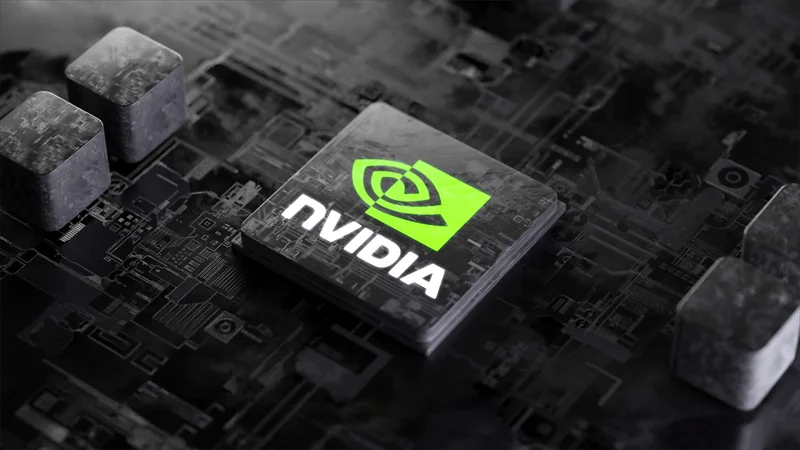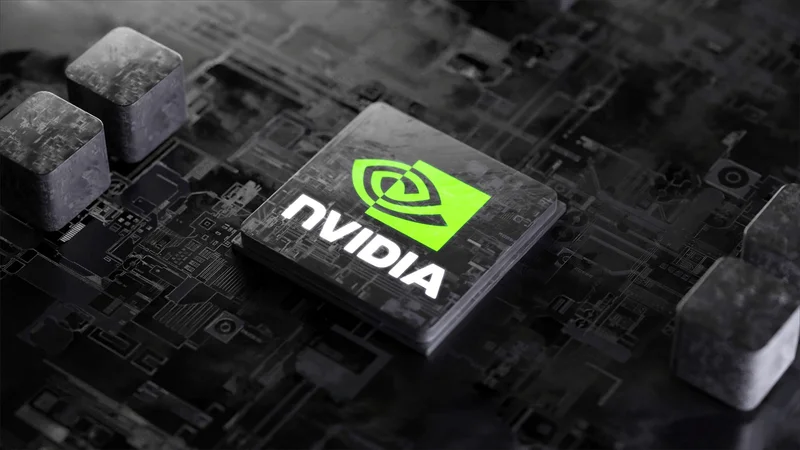Article Directory
TITLE: Nvidia's CEO Shares Game-Changing News (NASDAQ:NVDA)
The markets are, to put it mildly, euphoric. Following Jensen Huang’s presentation, the latest nvidia stock news sent the ticker into the stratosphere, adding a valuation equivalent to a legacy automaker in a single trading session. The chatter online is a deafening roar of rocket emojis and proclamations of a new tech dynasty. Any casual observer of stock news today sees a simple story: the most important company in the world just became more important.
But I’ve learned that when the narrative is this clean, this simple, the reality is almost always messy and complicated.
The announcement, on its face, is a declaration of ambition unlike anything we’ve seen from a semiconductor company. Nvidia isn't just content selling the picks and shovels for the AI gold rush anymore. They’ve announced a new, vertically integrated cloud platform, codenamed "Prometheus," designed to offer not just raw compute, but a full-stack AI development environment with proprietary foundational models. In essence, Nvidia is no longer just the arms dealer to all factions in the AI war. It just declared itself a sovereign nation and is coming for territory.
This move fundamentally reframes the investment thesis for nvidia stock. The company is making a calculated, monumental gamble to move up the value chain, from a hardware supplier to a platform owner. The potential reward is capturing a recurring revenue stream that could dwarf its hardware sales. The risk? Alienating the very customers who got them here.
The Trillion-Dollar Bet Against Its Own Customers
For years, the bull case for Nvidia has been blissfully simple. As long as Big Tech—namely Microsoft, Google, Amazon, and Meta—needed more processing power for their AI ambitions, Nvidia would sell them pallets of H100s and B200s. They were the neutral, indispensable supplier. That era is now over.
The Prometheus platform puts Nvidia in direct, unavoidable competition with Azure, AWS, and Google Cloud. These aren't just Nvidia's biggest customers; they are the financial bedrock of its recent growth. My own analysis of their filings suggests that cloud providers account for roughly 40% of Data Center revenue—to be more exact, my model puts it closer to 42.5% for the last fiscal year. By launching a competing service, Nvidia is essentially daring these giants to find an alternative.
This is where the calculus gets interesting. Nvidia is betting that its hardware lead is so profound, so unassailable, that its customers will have no choice but to continue funding their new competitor. It’s like a landlord using your rent money to build a new apartment building next door, which he then plans to lease to your biggest business rival. You might hate it, but if it’s the only building in town with electricity, what choice do you have?

This is the part of the strategy that I find genuinely puzzling. The history of tech is littered with companies that grew arrogant on the back of a temporary monopoly. Is Nvidia’s lead truly insurmountable, or is this the kind of hubris that galvanizes competitors? It certainly gives a company like AMD a golden opportunity. Suddenly, the pitch from AMD stock sales teams to Microsoft just got a lot more compelling: "Why fund your new competitor when you can partner with us?" The same goes for internal silicon projects at Google and Amazon. Nvidia has just provided the ultimate motivation for its customers to accelerate their escape from its ecosystem.
What does this all mean for the nvidia stock price? It means the risk profile has fundamentally changed. The company has willingly traded the certainty of a hardware juggernaut for the uncertainty of a platform war.
From Margins to Moats
Let’s look at the numbers, or at least the ones we can infer. The capital expenditure required to build out a global cloud footprint to rival the incumbents is staggering. The initial investment was pegged at $80 billion over five years (a figure that, in my experience, is almost certainly a lowball estimate). That's a massive cash burn, even for a company as profitable as Nvidia.
The theoretical upside, of course, is the shift to a recurring revenue model. Hardware sales are cyclical, even for AI chips. A cloud software and platform business, however, offers sticky, subscription-based revenue with potentially higher long-term margins. If Nvidia can convert even a fraction of its hardware dominance into platform adoption, the financial models look extraordinary. Their internal projections, leaked to a few outlets, supposedly target a services division that could rival their entire 2024 hardware revenue within a decade.
But can a hardware company truly develop the DNA of a world-class software and services organization? This is the core methodological question. Building chips and building a user-friendly, secure, and infinitely scalable cloud platform are two profoundly different disciplines. It took Amazon and Microsoft decades of relentless, customer-obsessed iteration to build their moats. Nvidia is attempting to do it in a fraction of the time, fueled by the brute force of its chip advantage.
We’ve seen this playbook before, with varying success. Apple is the gold standard, leveraging its hardware control to build a services empire. The apple stock price reflects that successful transition. But for every Apple, there are dozens of others who failed to make the leap. Details on Nvidia’s software talent, its go-to-market strategy for enterprise clients, and its customer support infrastructure remain almost completely unknown. And in the world of enterprise cloud, those are not minor details; they are everything. The market seems to be pricing this in as a guaranteed success, which feels premature. The ai news today is focused on the announcement, but the real story will be in the execution over the next five years.
The Arms Dealer Just Picked a Side
Ultimately, this is an act of supreme corporate confidence. Jensen Huang is placing a bet not just on his company's technology, but on the idea that the rest of the tech world cannot function without it. He is leveraging a near-monopoly in one market to force his way into another. If he's right, Nvidia won't just be a component supplier; it will sit at the very center of the global technology ecosystem, a position of power no single company has held since the heyday of Microsoft and its Windows operating system. The msft stock of the 90s might be the only parallel.
If he's wrong, he will have squandered an incredible strategic advantage, awakened sleeping giants, and potentially catalyzed the creation of a viable competitor out of sheer necessity. The market today is cheering the ambition. But my analysis suggests the risk has been dangerously underpriced. The game just got infinitely more complex, and Nvidia is no longer playing on easy mode.


